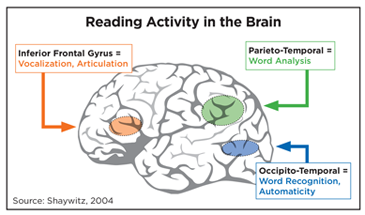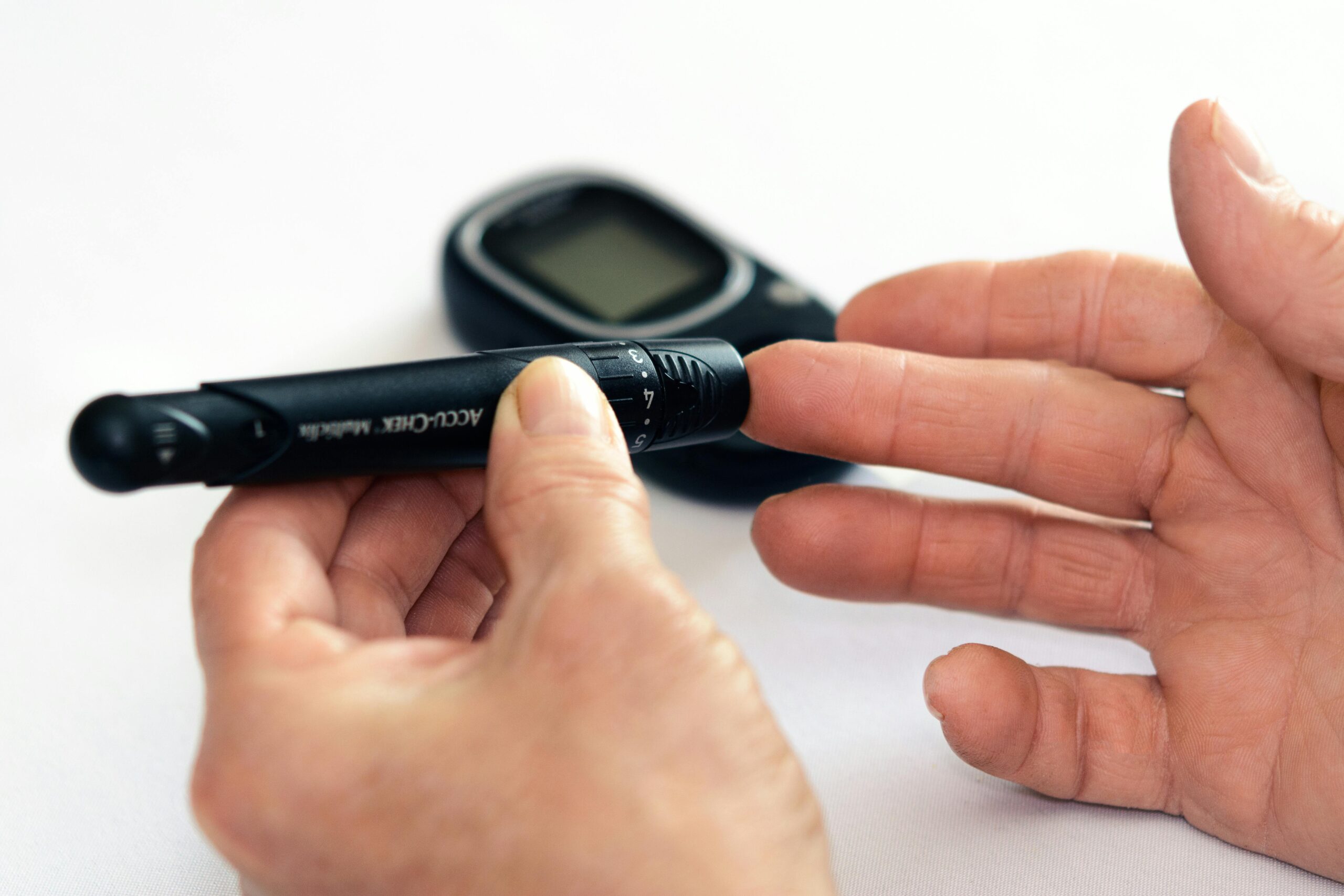Health
Rising Above Dyslexia: A journey, call for understanding

By Abimbola Ola
Living with dyslexia has never been an easy journey. When Asabe Musa joined a uniformed organization, she faced challenges that tested her strength and confidence. Instead of encouragement, she was often misunderstood. Some colleagues believed she was not good enough.
Unknown to many, Asabe suffers from dyslexia. Dyslexia, also known as word blindness, is a neurobiological learning difference that affects reading, spelling and writing due to a difference in how the brain processes language. It causes difficulties in decoding (connecting letters to sounds) and other language-based tasks, but is not related to intelligence or vision problems. While challenging, dyslexia exists on a spectrum and with appropriate support, people with dyslexia can achieve success in various aspects of life.
While Dyslexia affects how the brain processes information, but it can also lead to unique strengths like pattern recognition, problem-solving and creativity.
What part of the brain controls dyslexia?
Readers with dyslexia are often characterized by brain anomalies in the occipito-temporal cortex (OTC) and the temporo-parietal cortex (TPC). The OTC is frequently referred to as the brain’s letterbox, that is, the region in which neurons are specialized for recognizing strings of letters as known words.
Dyslexia does not mean weakness. It does not mean lack of intelligence. It simply means a person learn differently. Yes, it may take such a person longer to grasp instructions at first, but with time, patience, and determination, the person catches up and excel.
“They mocked me, whispered about me, and even reported me for the smallest mistakes—like the day a lady said I started with the wrong leg during parade. The ridicule was painful, but it did not break me. In fact, it became the fire that fueled my resilience. Dyslexia has taught me perseverance, humility, and strength. It has shown me that true ability lies not in being perfect, but in refusing to give up. For anyone living with dyslexia—or any challenge at all—know this: you are more than enough. Your journey may take a different path, but your destination can still be greatness,” she said.
Recognizing Dyslexia.
There are four types of dyslexia. These include phonological dyslexia, surface dyslexia, rapid naming deficit, and double deficit dyslexia. Dyslexia is a learning disorder where the person often has difficulty reading and interpreting what they read. It is neither infectious nor brought on by vaccinations.
The common signs
Dyslexia shows up in different ways, but some common signs include:
Difficulty reading, spelling, or pronouncing words
Mixing up letters or numbers when writing
Struggling to follow instructions or remember sequences.
Reading slowly, or avoiding reading altogether.
Trouble organizing thoughts or keeping track of details
Low self-confidence in learning environments
It’s important to remember that dyslexia does not equal low intelligence. In fact, many people with dyslexia are highly creative, innovative, and talented in fields outside traditional academics.
Supporting Children with Dyslexia
Every child with dyslexia deserves love, patience, and opportunity.
Here’s what we can all do:
1. Practice Patience: Learning may take longer, but they will get there.
2. Encourage, Don’t Criticize: Replace negative words with praise and support.
3. Offer Creative Learning Tools: Use visuals, colors, technology, and hands-on activities.
4. Build Confidence: Celebrate strengths in arts, sports, creativity, or leadership.
5. Create Safe Spaces: Make children feel accepted and free to learn at their own pace.
6. Collaborate with Teachers: Parents and educators must work together for consistent support.
7. Advocate for Awareness: The more people understand dyslexia, the less stigma children will face.
Final Words
Dyslexia is not a limitation—it is a different way of seeing and experiencing the world. Those who live with it carry within them resilience, creativity, and courage. If society can show more compassion and patience, we will unlock the hidden brilliance in children who only need a chance to shine.

Health
NAFDAC raises alarm over counterfeit Kiss condoms in circulation

The National Agency for Food and Drug Administration and Control (NAFDAC) has warned Nigerians about the circulation of counterfeit Kiss Condoms in major markets across the country, describing the development as a serious public health risk.
In Public Alert No. 042/2025, issued on Monday via its official X handle, the agency said the warning followed information received from DKT International Nigeria, the Marketing Authorisation Holder for Kiss Condom.
“NAFDAC is notifying the public about the sale and distribution of fake Kiss Condoms in various Nigerian markets,” the agency said. “The information was received from the Marketing Authorisation Holder, DKT International Nigeria, a leading non-governmental organisation focused on contraceptive social marketing.”
NAFDAC said the fake products have been detected in Onitsha Market in Anambra State, Idumota Market and Trade Fair Market in Lagos, as well as markets in Kano, Abuja, Uyo, Gombe and Enugu.
“The Fake Kiss Condom has been reported to be found in Onitsha Market, Idumota Market, Trade Fair Market, and various markets in Kano, Abuja, Uyo, Gombe, Enugu, and others,” it stated.
The agency explained that Kiss Condom is a registered brand of male latex condoms designed to prevent unwanted pregnancies and protect against sexually transmitted infections (STIs) such as HIV, gonorrhoea and syphilis.
To guide consumers, NAFDAC outlined key differences between genuine and fake products. Original Kiss Condoms come in light-red packs with complete medical device information, proper manufacturer and Nigerian addresses, storage and caution details, consistent barcodes and detailed usage instructions. The fake versions, it said, are typically darker, carry wrong or incomplete addresses, lack medical and caution information, show barcode inconsistencies and provide scant instructions.
NAFDAC also said genuine Kiss Condoms are larger, oval-shaped, well-lubricated and have a larger teat end, while the counterfeit versions are thinner, round-shaped, less lubricated and have smaller teat ends.
Warning of the risks, the agency said: “The use of fake condoms poses serious health risks due to poor quality, lack of sterilisation, and absence of regulation, leading to ineffective protection against pregnancy and STIs.” It added that risks include breakage, infection, allergic reactions and false security.
NAFDAC said all Zonal Directors and State Coordinators have been directed to intensify surveillance and mop up the falsified Kiss Condoms nationwide. It urged healthcare professionals and consumers to report suspected cases to the nearest NAFDAC office, call 0800-162-3322, or email sf.alert@nafdac.gov.ng.
The agency advised Nigerians to buy condoms only from reputable outlets and ensure products are genuine to safeguard their health.
Health
CAPPA: Nigeria must declare diabetes emergency

…Warns of 30,000 deaths yearly
By Grace Edet
As Nigeria joined the global community to mark World Diabetes Day, the Corporate Accountability and Public Participation Africa (CAPPA) has called on the Federal Government to declare a national state of emergency on diabetes care, warning that the disease is claiming 30,000 Nigerian lives every year and pushing millions into financial distress.
In a statement issued yesterday by its Media and Communication Officer, Robert Egbe, the organisation described as “alarming” media reports indicating that 11.4 million Nigerians are currently living with diabetes, with many unable to afford treatment.
Egbe said the situation had been worsened by the soaring cost of diabetes management, which now averages between ₦100,000 and ₦120,000 monthly, a burden he warned is “impossible for most patients” and fast becoming “a death sentence for many Nigerians impoverished by the poor economy.”
CAPPA’s concerns come against the backdrop of rising non-communicable diseases (NCDs) in the country, driven largely by unhealthy diets, sugar-sweetened beverages (SSBs) and aggressive marketing of ultra-processed foods. The group said the trend highlights the need for sweeping policy action.
It fully aligned with the Diabetes Association of Nigeria, which recently urged the Federal Government to prioritise diabetes care and scale up interventions nationwide. CAPPA specifically called for a significant upward revision of the SSB tax, insisting that proceeds should be dedicated to strengthening Nigeria’s weak health system.
According to Egbe, “unhealthy diets and sugary drinks drive NCDs risk, while the aggressive marketing and wide availability of sugary drinks and highly processed foods are changing dietary environments across the country.”
The organisation said its ongoing campaign for an SSB tax of at least ₦130 per litre, alongside mandatory front-of-pack nutrition labelling, is backed by global evidence showing that higher taxes reduce consumption, push manufacturers toward healthier product reformulation, and raise revenue for critical health investments. It added that clear nutrition labels would empower Nigerians to make informed choices.
This year’s World Diabetes Day, themed “Diabetes Across Life Stages,” underscores the reality that diabetes affects people at every point in life, including during pregnancy, further elevating the importance of preventive health financing and dietary regulation.
Health
Can You Lower Cholesterol Without Drugs?

…Doctors Say These 10 Steps Work.
MANY FACTORS CAN CAUSE your cholesterol levels to creep up, including your diet and how much you exercise. So sometimes making lifestyle changes can lower your numbers.
Cholesterol is a fat-like substance that’s found in all of your cells, and your body needs some of it to work properly. However, too much of certain types of cholesterol can increase your risk for a number of health problems, like a heart attack or stroke.
To know for sure if your cholesterol is high, you need a blood test. Commonly, cholesterol tests measure the amount of low-density lipoprotein (LDL), which is commonly known as “bad cholesterol,” and high-density lipoprotein (HDL) cholesterol. Some doctors say that doesn’t go far enough to really assess your risk, and they recommend measuring other lipoproteins including apoB and Lp(a).
“People should know that their cholesterol is determined both by their diet and by predetermined genetic factors,” says Brett Victor, M.D., a cardiologist at Cardiology Consultants of Philadelphia. “The degree to which these two factors contribute can vary greatly.”
That’s why some people are able to lower their cholesterol naturally with diet and other changes, and others need to take medication, such as statins, as well, Dr. Victor says.
For many people, lowering their cholesterol requires a combination of lifestyle changes and medication. And doctors often recommend changing what you eat, how often you move, and making other adjustments even if you take cholesterol medications. Here are some ways to help naturally lower your cholesterol:
Embrace a Plant-Based Diet
Tweaking your diet is one of the main ways you can lower disease-causing cholesterol, especially your LDL, explains Ira Monka, D.O., an osteopathic physician specializing in family medicine and president of the American Osteopathic Association.
Reducing your intake of saturated fats, which are found primarily in red meat and full-fat dairy products, can improve your cholesterol numbers. Dr. Victor suggests generally eating more plant-based foods, like fruits, vegetables, and whole grains.
Choose Lean Meats
If you aren’t ready to fully go plant-based, eat lean meats, like fish and chicken, instead of red meat, Dr. Victor says.
Cut Out Processed Foods
Ultra-processed foods, such as fast food, packaged meals, cookies, and soft drinks, have been linked to higher risks for heart disease. Studies also suggest that eating too many of these foods can worsen your overall nutrient intake and negatively affect your cholesterol levels.
Eat More Fiber
Foods rich in soluble fiber—such as whole grain cereals, fruits, vegetables, beans, and lentils—can help the digestive tract get rid of cholesterol, Dr. Victor says. Soluble fiber binds to cholesterol in your intestine and removes it from the body, reducing the likelihood of cholesterol being absorbed into your bloodstream.
Get More Exercise
“Cardiovascular exercises that get your heart pumping,” like running, walking, biking, and swimming, can help lower cholesterol, Dr. Monka says. These exercises can raise your HDL, which absorbs LDL cholesterol in your blood and carries it back to the liver, where it’s flushed out of the body.
Strive to get moderate physical activity at least 30 minutes a day five times per week and vigorous aerobic activity for 20 minutes three times a week, Dr. Victor says.
Reduce Your Stress Levels
Stress can heighten your risk for many health problems, Dr. Monka says. Research shows that stress can raise your LDL cholesterol and triglycerides.
“There are people who eat healthy, and they wonder why their cholesterol levels are high. This could be one of the reasons,” he says. Taking steps to reduce stress however you can is good for your cholesterol levels.
Quit Smoking
Smoking cigarettes can cause your blood pressure and heart rate to jump. Within 20 minutes of quitting, you’ll see those rates recover, according to the Mayo Clinic. After a year of not smoking, your risk of heart disease will be half of what a smoker’s is, and you’ll see improvements in your cholesterol.
Drink Less
If you do drink alcohol, do it in moderation. That means up to two drinks a day for men under 65 and one for those older than 65, according to the Mayo Clinic. Binge drinking or just generally drinking too much alcohol can affect your cholesterol, as well as bring on other health issues.
Maintain a Healthy Weight
Extra body weight can increase your risk for high cholesterol. So when you keep your weight in a healthy range, it can help reduce your cholesterol levels and lower your risk for health conditions. Reducing your intake of sugary, high-fat, and high-calorie foods and increasing your activity level can help.
Try Red Yeast Rice Supplements
Many natural products out there claim to lower cholesterol. Dr. Victor said the only one that has been clinically shown to help is red yeast rice, which is available in supplement form.
Red yeast rice contains the compound monacolin K, which is an ingredient found in some cholesterol-lowering medications, according to the Mayo Clinic. While the supplements are considered safe, they could cause some side effects. Dr. Victor suggests talking to your doctor before taking them.
When to Take Medication for High Cholesterol
Most doctors recommend that you change your diet, exercise more, and stop smoking when you have high cholesterol—regardless of whether they also prescribe medications, Dr. Monka says.
Often, you will need to take at least a low-dose statin to see your cholesterol levels lower, he adds.
Sometimes, if you need to start out taking a higher dose of cholesterol-lowering drugs, you can end up taking a lower dose or potentially stop taking the medication after making and maintaining significant lifestyle changes, Dr. Victor says.
—Culled from Men’s Health
-

 Art & Life9 years ago
Art & Life9 years agoThese ’90s fashion trends are making a comeback in 2017
-

 Entertainment8 years ago
Entertainment8 years agoThe final 6 ‘Game of Thrones’ episodes might feel like a full season
-

 Art & Life9 years ago
Art & Life9 years agoAccording to Dior Couture, this taboo fashion accessory is back
-

 Business9 years ago
Business9 years agoThe 9 worst mistakes you can ever make at work
-

 Entertainment9 years ago
Entertainment9 years agoThe old and New Edition cast comes together to perform
-

 Sports9 years ago
Sports9 years agoPhillies’ Aaron Altherr makes mind-boggling barehanded play
-

 Entertainment8 years ago
Entertainment8 years agoMod turns ‘Counter-Strike’ into a ‘Tekken’ clone with fighting chickens
-

 Entertainment9 years ago
Entertainment9 years agoDisney’s live-action Aladdin finally finds its stars




